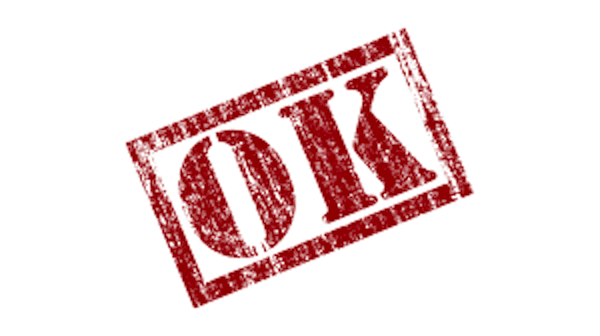[bctt tweet=”Check out the origins and uses of the word ‘O.K.'” username=”peggytharpe”]
Theories Abound About the Origins of the English Word ‘O.K.’
I wonder if the English word ‘O.K.’ is the most spoken word in the world? Everywhere I go, no matter what language people are speaking, I hear their speech peppered with ‘OK’s.
Where did it come from? When did it come into use? There are so many theories about this. Here are the leading ones.
Theory #1 – it comes from the Scots expression och aye
Theory #2 – it comes from the Greek ola kala (‘it is good’)
Theory #3 – it comes from the Choctaw Indian oke or okeh (‘it is so’)
Theory #4 – it comes from the French aux Cayes (‘from Cayes’, a port in Haiti with a reputation for good rum) or au quai (‘to the quay’, as supposedly used by French-speaking dockers)
Theory #5 – it comes from the initials of a railway freight agent called Obediah Kelly who is said to have written them on documents he had checked
Theory #6 – it comes from an abbreviation of orl korrekt , a jokey misspelling of ‘all correct’ which was current in the US in the 1830s
Theory #7 – it comes from Black slaves of West African origin, and represents a word meaning ‘all right, yes indeed’ in various West African languages
The oldest written reference ties this word to a slogan by the Democratic party during an American Presidential election of 1840. The candidate, President Martin Van Buren, was nicknamed ‘Old Kinderhook’ (for his birthplace in New York State). His supporters formed an ‘OK Club’, which undoubtedly helped to popularize the term.
Maybe, with all these people saying ‘ok’ everywhere, the sound just seemed to be universal and took on a life of it’s own.
Want to see what it means in the United States?
‘O.K.’ can have different meanings and uses, depending on what tone you use & how and when you say it. Watch this YT video.
[layout show=”2″]
